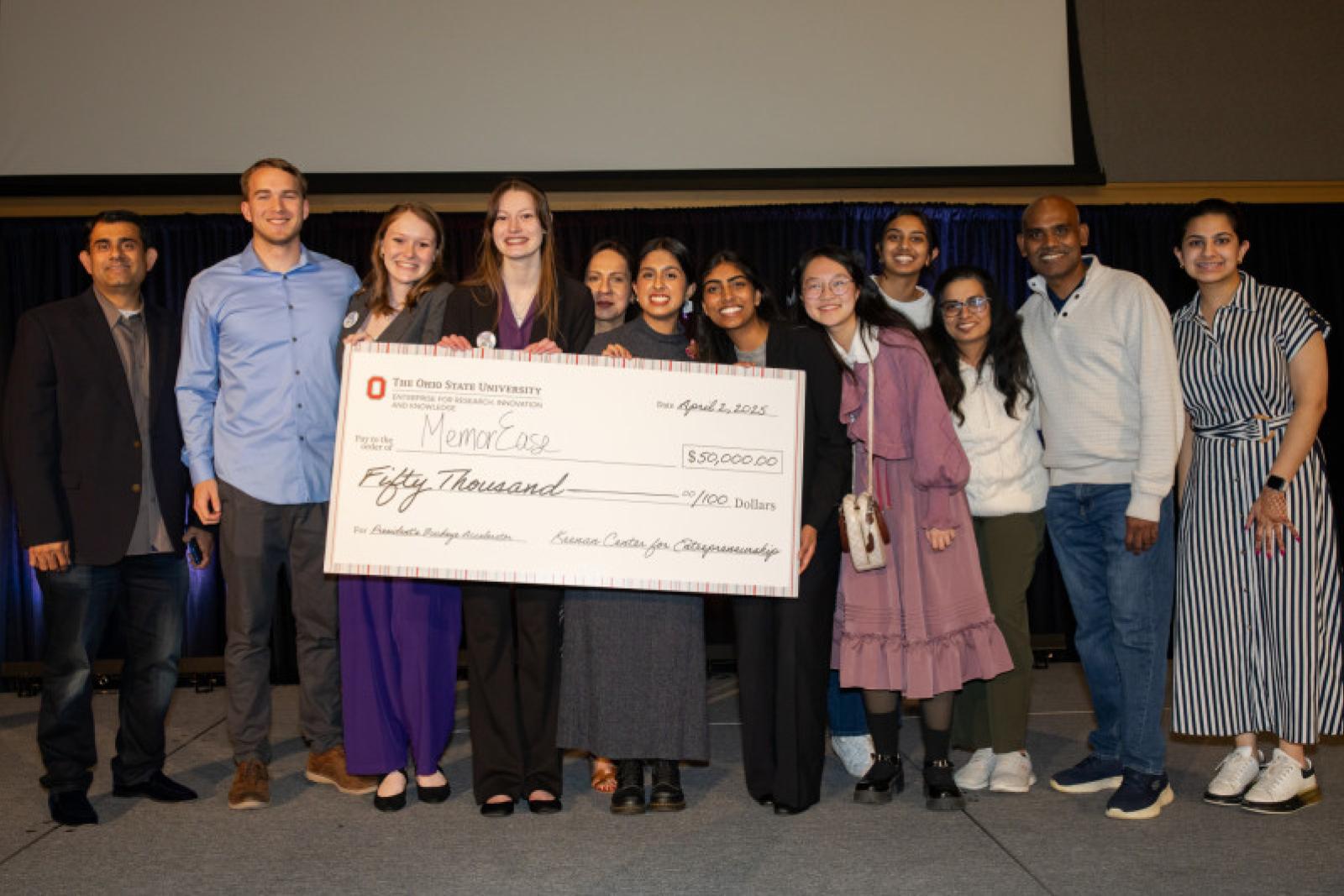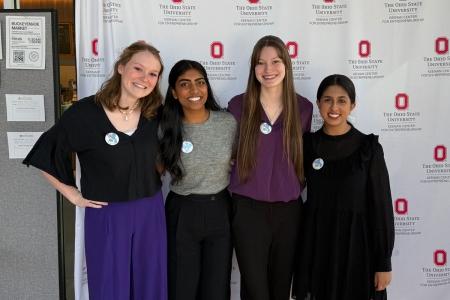Buckeye Accelerator fuels BSPS student innovation in dementia care

For as long as she can remember, Hannah Kemper, a third-year BSPS student at The Ohio State University College of Pharmacy, has cherished time with older adults — a bond that stems from late nights with her grandmother, who was always the last one up, indulging in online Mahjong.
“I’ve always connected with older adults and the progression of how a person changes throughout their life,” she explained.
Her fascination with human development has shaped her studies: she’s on the pre-med track, majoring in pharmacy with a minor in aging. It has also led her to venture into business, merging her passion for medicine with entrepreneurship.
Now, thanks to the President’s Buckeye Accelerator, Kemper and her team are bringing a fresh approach to memory care, using innovation to support caregivers and families affected by dementia.
Through their student organization, Golden Buckeye Memories—the first Ohio State group dedicated to memory care—Kemper and her cohort designed MemorEase, a digital tool for caregivers supporting loved ones with dementia. Their startup was one of six selected to receive $50,000 in funding through the Buckeye Accelerator program, ensuring that their app could move toward development.
“While our student group gets involved in community service by visiting care facilities and engaging with folks experiencing dementia and Alzheimer’s, we can only reach so far as a local group,” Kemper said. “When we learned about the Buckeye Accelerator Program, we felt that we should take advantage of this opportunity to address caregiver needs by creating a memory care tool with greater reach.”
The Buckeye Accelerator, overseen by Ohio State’s Keenan Center for Entrepreneurship, provides mentorship and funding opportunities to student founders. The program guides students through the startup process, preparing them to pitch their ventures for funding at the year’s end.
“This is the fourth cohort of the President’s Buckeye Accelerator, and the growth in ambition and quality each year has been incredible to watch,” said Cheryl Turnbull, senior director of the Keenan Center. “Our students are recognizing challenges across both established and emerging industries and creating ventures that reflect their academic strengths and commitment to meaningful impact.”

With MemorEase, Kemper and her team aim to ease the burden on caregivers, providing educational modules, support group connections and essential resources for navigating dementia care.
“A lot of resources on dementia are geared toward neurologists, which means a lot of jargon that patients and their loved ones won’t find digestible,” Kemper explained. “Our interface prioritizes simplicity, particularly as the disease’s progression makes website navigation much harder.”
Beyond information, MemorEase also seeks to help families engage with loved ones experiencing memory loss. The app offers activity suggestions based on dementia stages, with tracking tools to determine which activities resonate most.
“Folks will go to see their loved one, but they don’t know how to interact with this person as the disease progresses,” Kemper said. “Providing an activity list and recording its success is important. Loved ones are likely to forget the memory, but they always remember how they feel.”
With funding secured, the MemorEase team is now expanding its reach, bringing in app designers and memory care experts to refine and enhance the platform. Memory care organizations in Columbus will be among the first to test the app once it reaches the prototype phase.
While the Keenan Center continues to mentor the startup, Kemper and her team remain at the helm, ensuring that their personal approach to caregiving remains at the heart of MemorEase.
“The sad reality is, a lot of people have to care for a loved one experiencing dementia on their own,” she said. “Providing support like this is extremely important to make their journey easier. We’re taking a personal approach, even as we get closer to launch, because the support of others makes a major difference in caregiving.”